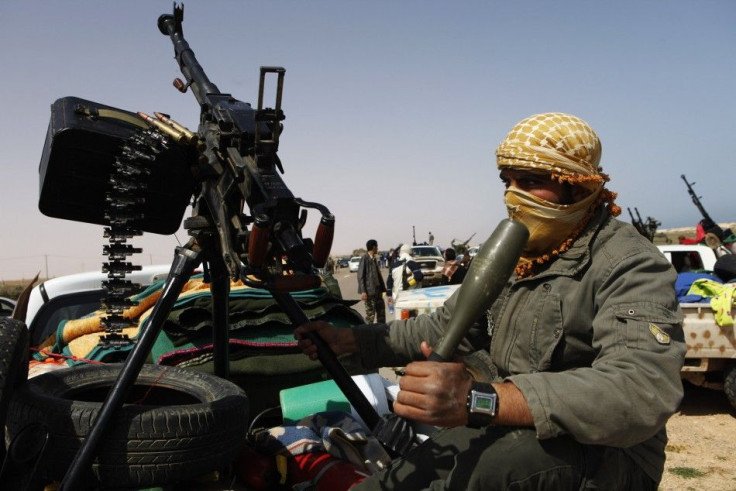What will the fall of Sirte mean to Gaddafi?

The Libyan rebels have claimed they have won control of Sirte, Gaddafi's hometown, but there are conflicting claims about control over Gaddafi's home town.
Tripoli Post said on Monday that fighting is still going on in Sirte and that the town is still under government control. According to an Al Jazeera report, rebels had claimed they captured Sirte and celebratory gunfire was heard in Benghazi.
Confusion over the real status in Sirte notwithstanding, the formidable advance made by the rebel forces and the capture or recapture in recent days of cities like Ajdabiyah, Brega, Bin Jawad, Ras Lanuf, Uqayla and Nawfaliyah mean that Gaddafi's options are extremely limited now.
WHAT GADDAFI DID IN SIRTE
Sirte is the capital of what is called the 'middle region' in Libya where the Al-Gaddafis are concentrated, effectively making it the most important place in Gaddafi's scheme of things in Libya.
Also, there have been reports saying that Gaddafi literally brought up Sirte by channeling investment and wealth into the city. He also made it the political nerve center of his rule by building alliances between his own tribe and other factions loyal to him.
Mohamed Ben Ghalbon, the leader of Libyan Constitutional Union, a prominent opposition force in the country, had this to say about how Gaddafi nurtured the city and the region. He gave generously, awarded many with prominent government positions, and met their wishes of services and advantages over the rest of the public. Gaddafi made Sirte a capital with all the modern facilities fit for an important capital city.
He did so despite the fact that Sirte is, in reality, far from every significant spot in the country where historically established capital cities such as Tripoli and Benghazi exist, Ghalbon said in an interview published on Libyan Constitutional Union's website.
NERVE CENTER OF OPPRESSIVE REGIME
Gaddafi did more than just showering bounties on Sirte and the middle region and won some lasting loyalty. He created state-of-the-art infrastructure in the region, explicitly making it the logistical nerve center of his military. He created air bases and sea ports besides making Sirte the base of the elite special response army units. Moreover, these elite crack troops were manned by members of his own tribe and factions allied with him.
These special units received advanced training, were equipped with the best weaponry he could buy and their members enjoyed the most generous monetary rewards in the country, said Ghalbon.
HIS GAMEPLAN
Gaddafi's reasons for doing what he did for Sirte were not exactly linked to his plan to develop the country. Gaddafi was most probably saving for the rainy day. He knew he was surrounded by enemies from within and without and a day could come when he had to bank on the loyalty of those of his own blood. Like the current crisis which has split the country down the middle. Gaddafi was in fact preparing the region for circumstances such as those we see in the present situation, said Ghalbon.
In the event of a rebel rise in other parts of the country, Gaddafi would have placed hopes on retaining the support of the oil belt, which includes cities like Brega, Sidra and Ras Lanuf. He also had counted on the oil companies to extend him crucial support in return to his generous support to them in the past.
He could reign over the small province (an Emirate) in control of the country’s oil and protected by forces equipped with the latest weaponry and training. Leaving the rest of the country consumed in the fire of its own revolution without water, electricity or a functional system to manage its affairs, says Ghalbon.
However, if Sirte is falling, the tide will have washed away much soil from under his feet, dealing a psychological blow to his side, besides cutting off supplies and manpower.
© Copyright IBTimes 2025. All rights reserved.





















